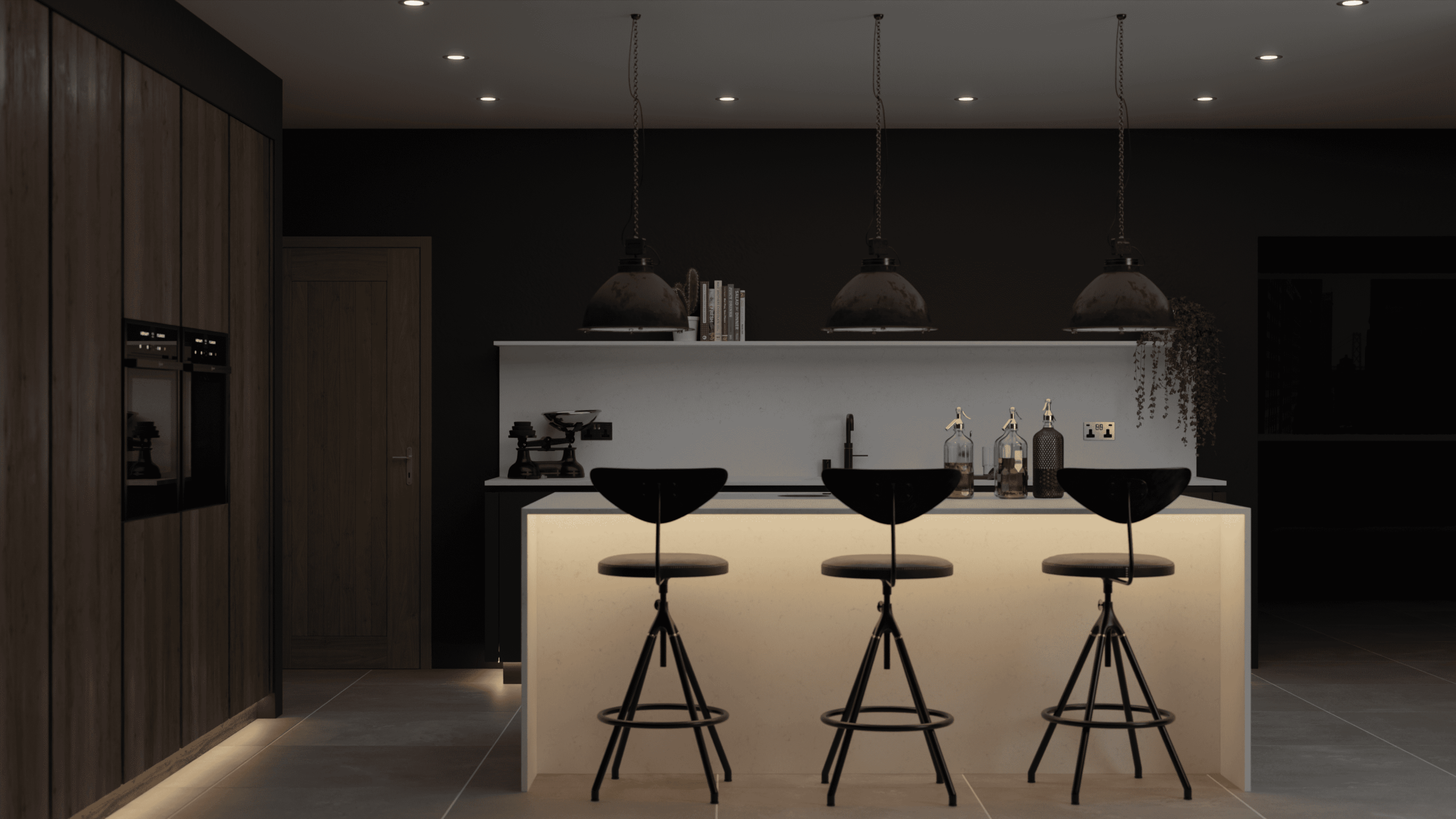When renovating or building a new kitchen, choosing the right worktop is one of the most important decisions you’ll make. Your worktop goes beyond mere function; it’s a central design feature that sets the tone for the entire room.
With so many premium materials available, from natural stone to advanced engineered surfaces, it’s essential to weigh up durability, style, maintenance, and budget before committing. This guide explores some of the most popular kitchen worktop options available in the UK today to help you choose the perfect fit for your home.
Key Factors to Consider When Choosing a Kitchen Worktop
You need to consider what you want from your worktop before making your choice. Here are key factors to consider when selecting your worktop:
- Durability: How resistant is it to scratches, stains, and heat?
- Aesthetics: Does it complement your chosen kitchen style and colour palette?
- Maintenance: Will it need resealing or specialist care, or is it easy to look after?
- Cost: Are you seeking a practical investment piece or a luxury centrepiece?
Popular Kitchen Worktop Options
There are so many kitchen worktop materials, from natural wood and stone to high-end manufactured varieties. Here’s a closer look at the 6 premium kitchen worktop materials and what makes each one unique:
Granite Worktops
Granite is a natural stone that remains one of the most sought-after kitchen worktops. Each slab is entirely unique, offering rich veining, colour variations, and a premium finish.
- Pros: Extremely durable, heat- and scratch-resistant, long lifespan, striking natural patterns.
- Cons: Requires periodic sealing to prevent staining.
- Best for: Busy households that want both durability and timeless style.
Ceramic Worktops
Ceramic worktops are one of the most modern and innovative surfaces available today. Made from natural raw materials like clay and minerals, ceramic slabs are fired at extremely high temperatures, creating a dense, ultra-strong surface.
- Pros: Heat, stain, and scratch resistant; ultra-slim; hygienic.
- Cons: Higher price point and requires professional installation.
- Best for: Contemporary kitchens aiming for a sleek, design-led finish.
Quartz Worktops
Quartz is an engineered stone made from natural quartz crystals mixed with resin. This makes it non-porous, hygienic, and available in a wide range of colours and finishes, including designs that resemble marble or granite.
- Pros: Low-maintenance, stain-resistant, huge design variety, durable and hygienic.
- Cons: Not as heat-resistant as natural stone (avoid placing hot pans directly on the surface).
- Best for: Families and homeowners who want the look of natural stone without the upkeep.
Marble Worktops
Marble is synonymous with elegance and luxury. Known for its soft veining and timeless appeal, it remains a favourite in both traditional and contemporary kitchens.
- Pros: Unique veining, classic luxury feel, naturally cool surface (great for baking).
- Cons: Softer than granite or quartz; more prone to scratches, etching, and staining; requires regular sealing.
- Best for: Homeowners prioritising aesthetics and sophistication over heavy-duty durability.
Silestone Worktops
Silestone is a premium brand of quartz worktops that also incorporates antimicrobial protection, making it one of the most hygienic choices available. It comes in an extensive colour palette with finishes ranging from polished to suede-like textures.
- Pros: Non-porous, highly resistant to stains and scratches, wide design options, built-in antibacterial properties.
- Cons: Like standard quartz, it is less heat-resistant than natural stone.
- Best for: Modern kitchens where hygiene, style, and low maintenance are top priorities.
Dekton Worktops
Dekton is an ultra-compact surface made from a blend of raw materials used in glass, porcelain, and quartz surfaces. Created using advanced sintering technology, Dekton is one of the most durable kitchen worktops on the market.
- Pros: Resistant to heat, scratches, UV rays, and stains; available in slim and large-format slabs for seamless designs.
- Cons: Premium price point compared to some alternatives.
- Best for: Contemporary kitchens where performance and cutting-edge design are essential.
FAQs About Kitchen Worktops
What is the most durable kitchen worktop material?
Granite and Dekton are considered the most durable, offering exceptional resistance to scratches, stains, and heat.
Which worktops are easiest to maintain?
Quartz and Silestone are non-porous and very easy to care for, requiring no sealing.
Can I put hot pans directly on my worktop?
Granite and Dekton can withstand heat better than quartz or Silestone, but using trivets is always recommended.
Do natural stone worktops require sealing?
Yes. Granite and marble should be resealed every 6–12 months to maintain their resistance to staining.
Which material is best for a modern kitchen design?
Silestone and Dekton are particularly popular in contemporary kitchens thanks to their sleek finishes and high performance.
Ready to Upgrade Your Kitchen?
Whether you’re looking for the natural beauty of granite and marble, the practicality of quartz, or the cutting-edge innovation of Silestone and Dekton, there’s a perfect worktop for every style of kitchen. Stone Synergy supplies and installs premium-quality stone worktops at competitive prices, helping homeowners across the UK bring their dream kitchens to life.
Explore the full range of worktops today and find the perfect surface for your home.
